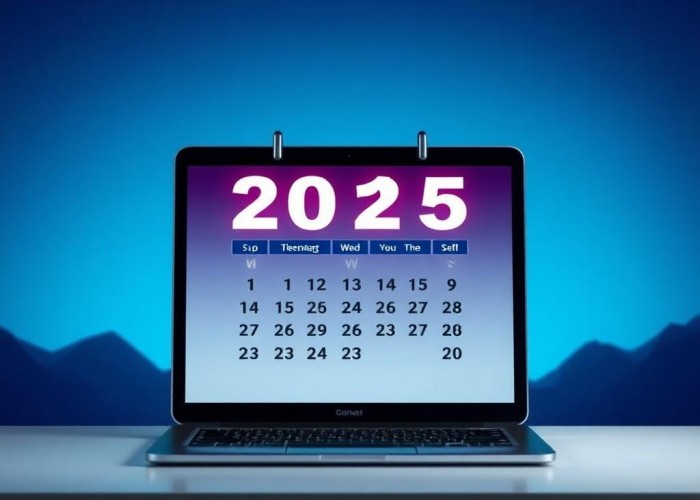Naturally, how we spend our days determines how we spend our lives. We are doing what we are doing with this hour and that hour. According to Annie Dillard's book The Writing Life, a timetable protects against chaos and whims. Time management tips for men this quotation encapsulates how people view time and how we may create plans and skills to maximize output and accomplish our objectives.
People who appear to have it all together may be encountered in everyday life, at work, and at university. They are high achievers, stress-free, and industrious. However, it's likely that they weren't born that way. We can learn how to distribute, organize, and manage our time. By doing this, you may better manage your time and increase your level of pleasure. Here are some strategies and tactics to help you manage your time for improved health.
Describe time management.
To improve efficiency, time management involves deliberately planning and regulating the amount of time spent on particular tasks. You might be accustomed to creating to-do lists, assigning yourself little incentives for completing certain tasks, and establishing deadlines. In order to accomplish our goals, we must motivate ourselves to execute the necessary tasks.
The first step in creating effective time management routines and habits is learning the various tactics and putting them to the test in your own life. A balanced, healthful lifestyle that results from effective time management might look like this:
- Stress reduction
- Boosting vitality
- Reaching objectives more effectively
- Setting priorities for what matters.
- Getting more done in less time
- Cutting back on procrastination
- Increasing self-assurance
- Advancing in your profession or studies
The Harvard Business Review states that awareness, organization, and flexibility are the fundamental abilities at the heart of time management techniques. The key to efficient time management is being aware of your time, planning it, and making adjustments as you go. According to IBM's skills gap assessment, time management and prioritization abilities rank second, and executives now cite behavioral skills as the most crucial for the workforce of the twenty-first century.
Best 15 Time Management Tips For Men
1. Make an appropriate schedule.

There is more to scheduling than just noting tasks that need to be completed, such as appointments and meetings. Make sure to factor in time for your desired activities. You must understand yourself in order to schedule well. Looking at your time log should reveal when you're most awake and productive.
When you have the most energy, schedule your hardest jobs. Set aside time for your top priorities first, and make sure that time is free from distractions. For lengthy travels or while you're waiting for a call or appointment, schedule quick activities like writing an email, making a grocery list, reading, watching webinars, or listening to podcasts.
Make the most of time that might otherwise be lost. Steer clear of pointless pursuits like social media scrolling and gaming. Set aside around three-fourths of your day for planned time so that you may engage in creative pursuits like thinking, brainstorming, and planning.
Read also: Beginner Workout Routine For Men To Build Muscle
2. Delegate: Seek assistance from others.
By giving someone else responsibility for a task, you may free up your time for other duties that call for your knowledge. Determine which duties may be completed by others and choose the right person or people to complete them. Choose a person who has the authority, interest, expertise, and abilities required to do the assignment.
Give specifics. Give the worker some latitude to customize the assignment while clearly defining it and your expectations. Periodically assess the person's development and offer any help, being cautious not to assume full responsibility. Lastly, commend the individual for a job well done or, if necessary, offer recommendations for enhancements.
Getting time-saving products or services is another approach to seek assistance. For instance, hiring someone to clean your home or mow your lawn or to carpool your kids to extracurricular activities frees up time for other pursuits. The expense of engaging someone for specialized tasks is frequently justified by the time savings.
3. Give up putting things off.
There are several reasons why people put off responsibilities. The work could appear daunting or disagreeable. Think of eating the huge frog first to help you quit putting things off. If it's your duty to eat a frog today, it's better to do it first thing in the morning, goes a remark that is sometimes credited to Mark Twain.
Additionally, it is preferable to eat the larger frog first if you are required to consume two frogs. Big frogs are unpleasant activities that we put off doing. Get these chores done first thing in the morning to clear your schedule.
You may also snowball your work by dividing it into smaller parts, doing the smaller jobs first, and then finishing the bigger task at hand. Whether you decide to use the snowball approach or the large frog method initially, try including a system of rewards for chores that are finished to keep yourself motivated.
4. Steer clear of multitasking (Time Management Tips For Men)

According to psychological research, multitasking does not result in time savings. The contrary is frequently true, in fact. When you transition between tasks, you lose time, which lowers your productivity.
Rubinstein, Meyer, and Evans, 2001. Frequently multitasking might make it harder to focus and concentrate. Make every effort to concentrate on a single activity at a time by clearing your workspace of distractions, including turning off device notifications, and allocating particular time for each task.
5. Maintain your health.
Taking proper care of oneself is a significant time commitment. Setting aside time to unwind or do nothing allows you to reenergize both mentally and physically, which makes it easier and faster to complete things. As part of your digital well-being, make sure to keep an eye on how much time you spend on screens and establish appropriate boundaries.
According to a Google research study, four out of five individuals who made efforts to enhance their digital well-being also felt that their general well-being had improved (Google, 2019). Setting time restrictions or using built-in software on electronic devices, including phones and tablets, can help you maintain your digital well-being.
Grayscale mode and blue light filters could also help you feel better about using technology. Establish a time each night to turn off all electronics to allow your mind to unwind; this will also help you sleep better.
Sadly, ineffective time management and excessive screen usage can lead to weariness, irritability, and an increased risk of sickness. Reward yourself for time management accomplishments to help you feel less stressed. Before proceeding to the next action, take a moment to acknowledge that you have successfully completed a significant task or obstacle.
6. Work from home. (Time Management Tips For Men)

The typical American commute takes more than 26 minutes, in case you were unaware. The daily commute is growing longer, which exacerbates the situation.
You can quickly see how much time is lost traveling to and from work when you include in the time needed to get ready. Even if it's not feasible for every profession, working from home twice a week can save you a number of hours.
Read also: Top 10 Workouts for Men Over 40
7. Look for motivation.
I utilize motivational materials, such as TED Talks or biographies, when I'm feeling down. It's an effortless method to rekindle my motivation and get me back on course.
8. Combine related tasks into batches.
Batch-related tasks together when you have them. For instance, avoid taking calls and emails during the day. Set aside a certain amount of time to do these activities. Why? Different kinds of thinking are required for different jobs. By grouping comparable things together, you save time reorienting since your brain isn't switching gears.
9. Take on less. (Time Management Tips For Men)
This is Leo Babauta's strategy. He founded the blog Zen Habits, which is absolutely worth reading. What does Leo think about doing less, then? Less does not necessarily equal more.
It implies that less is better. This is accomplished by slowing down, focusing solely on the tasks at hand, and being conscious of what has to be done. Make every deed matter after you've done it. Consequently, you will be producing more than simply fodder.
10. Make use of an online calendar.

One essential tool for time management has traditionally been a calendar. Online calendars, however, have elevated this to a new level.
This is due to the fact that you can simply book meetings and appointments, set up reminders, establish time blocks, schedule recurring activities, and access it from numerous devices. I use Google Calendar myself. It's the finest, in my opinion. However, Apple Calendar and Outlook both function fine.
11. Give up trying to be flawless.
Nothing will ever be satisfactory enough for someone who is a perfectionist. That implies that you will repeatedly return to the same task. How effective do you think this will make your day? So, quit trying to be flawless. It is nonexistent. Try your hardest and go on.
12. Simply refuse. (Time Management Tips For Men)
You don't want to annoy anyone; I know that. But there's a limit to how much you can take. If you already have a lot on your plate, turn down the offer to dinner or work with your coworkers on a project until you have more time.
Read also: Is Yoga the Right Choice for Man?
13. Establish enduring habits.
The phrase keystone habits was first used by Charles Duhigg, author of The Power of Habit. However, what are they? They are just behaviors that have the power to change your life, including working exercise, keeping a food journal, creating daily routines, and practicing meditation. These behaviors encourage other positive behaviors and replace negative ones. You'll be healthier, more concentrated, and more adept at time management as a consequence.
14. Save time by not waiting.
Let me tell you the truth. Waiting is unbearable to me. I'm not being impatient. Simply said, I am aware that there are better ways to spend this time.
But rather than squandering this time, I've discovered methods to maximize it. For instance, I may read a motivational book, listen to a podcast, or plan out a future blog article while I'm waiting in line.
15. Create a schedule (Time Management Tips For Men)

Establish a work schedule that is most appropriate for your role. What makes this significant? First, even on a busy day, you'll follow your schedule and solve the problem. You won't be able to put things off if you follow your regimen. Above all, your stress levels and mental health will be grateful.
How to design a time management plan
Now that you have some possible time management techniques and advice in your toolbox, it's time to develop a plan. You may try a few different methods before settling on your best long-term routines and habits.
Decide on priorities and goals.
Think about your lifestyle, including if you have a family, are a working professional or a student, or both. You may even want to become a digital nomad. Consider your short- and long-term professional and personal growth objectives. Make sure the objectives are current, relevant, quantifiable, achievable, and explicit.
How are they going to be accomplished? How can you organize your schedule to be as productive as possible? After determining your objectives, rank them in order of significance. It might be useful to use posters or paper to better visualize your priorities.
Select the approach that works best for you.
Choose one or two strategies to use from the above list of suggestions. Use different time management methods based on what works for you. Try one at random if you're still deciding which ones work for you.
Read also: How to do burpees, a weight-free workout that gets you shredded fast
Make a plan and carry it out.
Use your selected approach gradually. Usually, a month is sufficient to assess the effectiveness of a plan. Track your progress over 30 days. After a week or two, make notes on your feelings.
Did one approach work better than the other? Set your weekly and monthly objectives using a pen and paper, Google Calendar, or a planner.
Make a to-do list with attainable (Swiss Cheese) goals for everyday chores every morning. Feel free to freely add little prizes and buffer your days.
Reevaluate. (Time Management Tips For Men)
It's time to reevaluate your time management techniques after a month. What is effective? What isn't functioning? To increase your effectiveness, modify your plan and approach. Keep up these routines every month, modifying them to fit your shifting priorities.
When you start a new career, what worked for you as a student might not work for you now. Keep in mind that time management is a continuous effort and that life happens, complete with its own set of stresses and difficulties. It's acceptable to not become an expert in time management right away. Progress, not perfection, is the goal.
conclusion on Time Management Tips For Men
Spend some time assessing the success of the time management techniques you employ. Do your personal and professional lives have a satisfactory balance? Are you completing the most significant things in your life? Time management tips for men do you devote enough attention to your own health and well-being? Any no answers to these questions suggest you should review your time management methods and switch to more effective ones. More successes at work and at home, more personal satisfaction, and a more fulfilling future are all results of effective time management.
FAQs: Time Management Tips for Men
What are five tips for effective time management? (Time Management Tips For Men)
- Set reminders for all your tasks.
- Create a daily planner.
- Give each task a time limit.
- Block out distractions.
- Establish a routine.
What is the 3-3-3 method of time management?
Oliver Burkeman, the author of Four Thousand Weeks: Time Management for Mortals, developed the 3/3/3 approach as a time management strategy. Every typical workday, the approach calls for allocating three hours to the most crucial ongoing project, three hours to minor tasks, and three hours to maintenance operations.
What is the golden hour rule in time management? (Time Management Tips For Men)
In a People Matters piece, Jodi Wehling refers to them as your golden hours. To put it another way, those times of day when you're most aware, driven, and inspired to tackle your to-do list or inbox and finish tasks.
What is the 60-40 rule in time management? (Time Management Tips For Men)
Truly little consideration has been given to how important leaders should manage their time. The 60% of allocated time should be split into quarters, with 1/4 going to customers, external constituencies, products, and people, in my opinion. Set aside 40% for unexpected costs.
